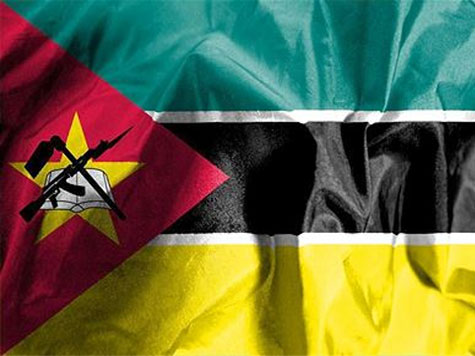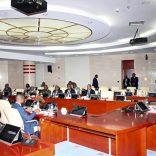Mozambique: Chapo appoints new head of State Security and Intelligence Service
Mozambique: Eugenio Mussa’s death a ‘heavy blow’ – analysts

Picture: Lusa
Political analysts have said that the death, due to illness, of the Chief of Staff of the Armed Defence Forces of Mozambique (FADM), Eugenio Mussa, is a heavy blow to the strategy to combat armed groups in Cabo Delgado.
Eugenio Mussa died on Monday in Maputo, the Mozambican Ministry of National Defence said in a statement.
Muhamad Yassine, a specialist in international relations and lecturer at Joaquim Chissano University, told Lusa that the death of Eugênio Mussa shook the Mozambican president’s expectations of imposing the power of the FADM in the war against armed groups, given that the soldier commanded the “Northern Operational Theatre”, which covers the province of Cabo Delgado, in the fight against insurgents in the region, before becoming Chief of Staff.
“The president never hid that he had the armed conflict in Cabo Delgado in his sights when he nominated General Mussa,” he said.
The academic said that Eugenio Mussa had fought with apparent success in Cabo Delgado before being promoted to the position in which he stayed for a few weeks and generated confidence in the president, Filipe Nyusi, and in public opinion regarding the war in that province.
“The short time he stayed in his last position, and the fact that matters of a military nature are treated with strict secrecy in Mozambique makes it an unknown what strategy Eugenio Mussa would follow in the war in Cabo Delgado, but all the signs indicated that the head of state had confidence in the direction his general would give to combative actions,” said Muhamad Yassine.
Juma Aiuba, an analyst based in the northern province of Nampula, where Eugénio Mussa was also born, considered the officer’s death a setback since he had brought great hope in the ability to defeat the armed groups in Cabo Delgado.
“When he took command of the Northern Operational Theatre at the end of last year, he had an encouraging rhetoric for his troops on the ground and gave the understanding that there is a war in Cabo Delgado that the military must take on because it was not a police matter,” said Juma Ayuba.
With Eugénio Mussa in command of the Northern Operational Theatre and then at the head of the general staff, the armed groups operating in Cabo Delgado seemed to withdraw into their strongholds. They were incapable of carrying out daring attacks daily.
“At least, we have not had reports of daily attacks by the insurgents, even though the war in Cabo Delgado seems to be far from over,” Juma Aiuba noted.
Aiuba also said that the head of state’s heartfelt praise for the qualities of Eugénio Mussa” during the funeral eulogies showed that Nyusi had personal confidence in the soldier and his ability to lead the war in Cabo Delgado.
Ivan Mazanga, a specialist in international relations, said that the FADM quickly needs to institutionalise and socialise itself into the strategy and fighting spirit that Eugénio Mussa was letting on.
“It would be a mistake if the war strategy in Cabo Delgado was personified in Eugénio Mussa, because that was the end of that strategy, the FADM need to institutionalise and socialise in the fighting spirit that he showed, at least in his speech,” he said.
Ivan Mazanga pointed out that armed violence is always a state issue whose approach must go beyond the sphere of competence of one person, such as General Eugenio Mussa, despite the significant influence that great military leaders exercise over their troops.
“As the military themselves say, when the general falls, they pick up their weapon and continue the fight, I think that is the motto they should embody,” he said.
In his speech during the official funeral ceremony, the Mozambican president described Eugenio Mussa as a military man determined to eradicate terrorism.
“General Mussa publicly reaffirmed his determination and patriotic commitment, manifested his conviction in fighting and eradicating terrorism in Mozambique, particularly in the province of Cabo Delegado,” Nyusi said.
The armed violence in Cabo Delgado is causing a humanitarian crisis with over 2,000 deaths, and 560,000 people displaced, without housing or food, concentrated mainly in the provincial capital, Pemba.
Some of the insurgent incursions have been claimed by the jihadist group Islamic State since 2019.













Leave a Reply
Be the First to Comment!
You must be logged in to post a comment.
You must be logged in to post a comment.